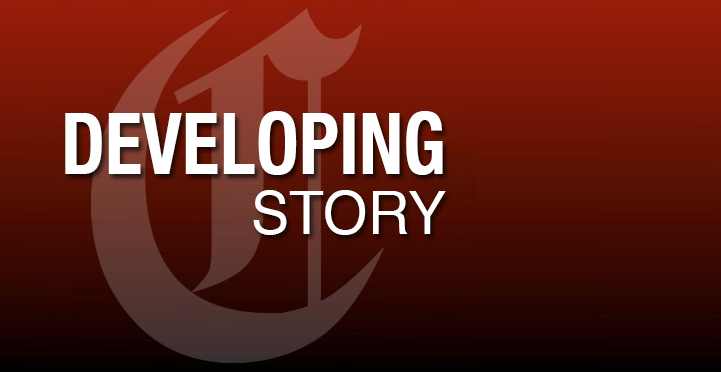Every time Frank Walker visits his doctor in Hixson, he needs help. He needs a Special Transit Services bus to get him there. But even before then, before he can hop on board, Walker usually needs help making a call to request a ride.
For about a year, Walker said, he has not had a phone. He used to have one, but somewhere along the way he lost it. Since then, he has needed his sister's help to call the bus service, so that he can get help from the driver, so that he can get help from a doctor.
Walker, 58, wants independence -- just a little, at least.
On Tuesday morning, Walker limped out of the Chattanooga Community Kitchen and talked about life with a new phone. He should get one Monday, he said. But who knows? Maybe it will come sooner.
Two weeks ago, Walker visited the Chattanooga Community Kitchen and read a sign outside: "SafeLink wireless. FREE PHONE. SIGN UP TODAY!" That sign has sat in front of the Community Kitchen's entrance a couple of times each week for the past month, ever since Solo Roberson began showing up as a SafeLink community outreach representative.
Roberson started working for SafeLink on April 19. She goes around the city, to places like the Community Kitchen and Patten Towers and Rogers Super Market, and registers people who qualify for the program.
SafeLink is associated with Lifeline, a Federal Communications Commission program that provides discounted phone service to low-income people on public assistance.
The program reduces their phone bills by $9.25 each month. In turn, the phone company receives $9.25 for every customer who gets the Lifeline discount, funded by a fee of $1 to $1.25 per month on residential telephones. If your phone plan costs less than $9.25 a month, your phone is essentially free.
The cellphones are like ones you can buy at a convenience store, and they provide 250 minutes or 1,000 text messages or a combination of both. Four text messages are the same as one minute.
Walker, who lives in Brainerd, leans on a cane. About 10 years ago a car hit him on East Eighth Street, damaging the discs in his lower back.
That's why he needs to go to the doctor, and why he needs the rides to Hixson, and why he needs a phone.
On Tuesday, Walker brought his Medicaid card and signed up, and now he waits for his phone to arrive in the mail.
Critics decry expense
The program has its critics. It has become too expensive, said Tony Sanders, the Hamilton County Republican Party chairman.
In 2008, the federal government spent $821 million. In 2012, it spent about $2.2 billion.
"Some of that can be legitimate," Sanders said. "The economy has suffered since 2008. There's probably a lot more people who became eligible for the phones. But does it warrant that kind of growth? And this is a tax that everybody has to pay. The cost goes to the phone company, and they pass it on to us."
In September, a video on The Drudge Report showed an Obama supporter explaining why she wanted to re-elect the president. In a misguided way, she pointed to the Lifeline program.
"Everybody in Cleveland, low minorities, got Obama phones," she said in the video. "Keep Obama in president, you know. He gave us a phone. He's gonna do more."
For some, the video shows what is wrong with this country. Here was the so-called "47 percent," the group that Mitt Romney said wouldn't vote for him because he would not give them government handouts.
Never mind that the "Obama phone" moniker is belied by Lifeline's history. The program began under Republican President Ronald Reagan.
Looking for savings
An FCC spokesman said the agency tweaked the program beginning in February 2012 to reduce costs, eliminating some outdated aspects and demanding that companies prove their customers are eligible. By the end of this year, the FCC hopes to have a national database to ensure that nobody signs up for Lifeline twice.
The agency projects the program to cost about $1.8 billion this year -- down about $300 million from 2012 -- and for additional savings as cost-cutting strategies are fully being implemented.
Even so, some Republicans argue, these programs are too big. They are impossible to regulate. Misuse is inevitable.
Two weeks ago, the conservative activist group Project Veritas posted a YouTube video that showed workers in Philadelphia giving people free phones as part of a program similar to SafeLink.
In the video, customers tell the workers they will sell the phones for drugs and Louis Vuitton handbags. The workers still give them the phones.
Mark West, the president of the Chattanooga Tea Party, said the country can't afford Lifeline.
"It's so easy to theorize and hypothesize when it's the government," he said. "People need to think of the government as the family budget. ... Do we want the full cable package, or do we want to scale back to just the basics? Do we want a Cadillac, or can we just afford the Chevy? Those are choices we make every day in our family budgets, but we fail to make the connection with our government."
Contact staff writer Tyler Jett at tjett@timesfreepress.com or 423-757-6476.

